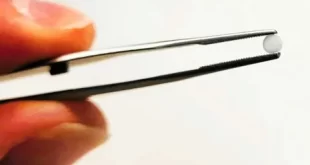DARK, Niels Bohr Institute
Faculty of SCIENCE
University of Copenhagen
DARK invites applicants for PhD fellowships in transient astrophysics, early galaxy evolution, cosmology and fundamental physics. The PhD fellowships are part of a comprehensive research project on ‘Time in Astrophysics.’
The projected start date is September 2024.
The project
DARK welcomes applications for several PhD positions in astrophysics and cosmology under the general research theme of “time”. This includes:
- transient astrophysics: discovery (e.g., with the Legacy Survey of Space and Time) and follow-up observations (e.g., with JWST) of supernovae, kilonovae and lensed transients
- galaxy formation and evolution: high-redshift observations (with JWST) as well as theoretical/numerical simulation work
- cosmology: observational supernova (type Ia) cosmology, including the Hubble constant tension
- time: the concept of time in physics, numerical experiments, philosophy of time, artistic impressions
We are seeking passionate and motivated individuals who we will support in developing their research interests in collaboration with DARK scientists as well as our international collaborators. We also welcome individuals who can contribute innovative perspectives to the broader concepts within the project, for example, explorations at the intersection of art, science, and time.
Our group and research — and what we offer
We are part of the Niels Bohr Institute, Faculty of Science at the University of Copenhagen.
- DARK’s areas of research include, but are not limited to galaxy formation & evolution, astrophysical transients, neutrino astrophysics, dark matter and dark energy, black holes and AGN, and cosmic dust.
- DARK values diversity and promotes inclusivity. We actively support underrepresented groups in higher education careers and encourage them to apply.
- PhD students are encouraged to develop ownership of their projects and will receive support to travel to international conferences and visit collaborators. They are encouraged to work with faculty and junior professors and will have access to a range of international observing facilities, computing facilities, and an assortment of international collaborations.
- For more information on the Center’s activities and researchers, please see DARK – University of Copenhagen (ku.dk)
Principal supervisor isProfessorJens Hjorth, DARK, Niels Bohr Institute, E-mail: jens@nbi.ku.dk
The PhD programme
Depending onyour level of education, you can undertake the PhD programme as either:
Option A: A three year full-time study within the framework of the regular PhD programme (5+3 scheme), if you already have an education equivalent to a relevant Danish master’s degree.
Option B: An up to five year full-time study programme within the framework of the integrated MSc and PhD programme (the 3+5 scheme), if you do not have an education equivalent to a relevant Danish master´s degree – but you have an education equivalent to a Danish bachelors´s degree.
********************************************************************************
Option A: Getting into a position on the regular PhD programme
Qualifications needed for the regular programme
To be eligible for the regular PhD programme, you must have completed a degree programme, equivalent to a Danish master’s degree (180 ECTS/3 FTE BSc + 120 ECTS/2 FTE MSc) related to the subject area of the project, e.g. physics or astronomy. For information of eligibility of completed programmes, see General assessments for specific countries and Assessment database .
Terms of employment in the regular programme
Employment as PhD fellow is full time and for maximum 3 years.
Employment is conditional upon your successful enrolment as a PhD student at the PhD School at the Faculty of SCIENCE, University of Copenhagen. This requires submission and acceptance of an application for the specific project formulated by the applicant.
Terms of appointment and payment accord to the agreement between the Danish Ministry of Taxation and The Danish Confederation of Professional Associations on Academics in the State. The position is covered by the Protocol on Job Structure.
Option B: Getting into a position on the integrated MSc and PhD programme
Qualifications needed for the integrated MSc and PhD programme
If you do not have an education equivalent to a relevant Danish master´s degree, you might be qualified for the integrated MSc and PhD programme, if you have an education equivalent to a relevant Danish bachelor´s degree. Here you can find out, if that is relevant for you: General assessments for specific countries and Assessment database .
Terms of the integrated programme
To be eligible for the integrated scholarship, you are (or are eligible to be) enrolled at one of the faculty’s master programmes in physics.
Students on the integrated programme will enroll as PhD students simultaneously with completing their enrollment in this MSc degree programme.
The duration of the integrated programme is up to five years, and depends on the amount of credits that you have passed on your MSc programme. For further information about the study programme, please see: www.science.ku.dk/phd , “Study Structures”.
Until the MSc degree is obtained, (when exactly two years of the full 3+5 programme remains), the grant will be paid partly in the form of 48 state education grant portions (in Danish: “SU-klip”) plus salary for work (teaching, supervision etc.) totalling a workload of 150 working hours per year.
A PhD grant portion is currently (2022) DKK 6.598 before tax.
When you have obtained the MSc degree, you will transfer to the salary-earning part of the scholarship for a period of two years. At that point, the terms of employment and payment will be according to the agreement between the Ministry of Finance and The Danish Confederation of Professional Associations on Academics in the State (AC). The position is covered by the Protocol on Job Structure.
Responsibilities and tasks in the PhD programmes
- Complete and pass the MSc education in accordance with the curriculum of the MSc programme
(ONLY when you are attending the integrated MSc and PhD programme)
- Carry through an independent research project under supervision
- Complete PhD courses corresponding to approx. 30 ECTS / ½ FTE
- Participate in active research environments, including a stay at another research institution, preferably abroad
- Teaching and knowledge dissemination activities
- Write scientific papers aimed at high-impact journals
- Write and defend a PhD thesis on the basis of your project
We are looking for the following qualifications:
- Professional qualifications relevant to the PhD project
- Relevant publications
- Relevant work experience
- Other relevant professional activities
- Curious mind-set with a strong interest in time and temporal aspects of astrophysics
- Excellent English language skills
***************************************************************************
Application and Assessment Procedure
Your application including all attachments must be in English and submitted electronically by clicking APPLY NOW below.
Please include:
- Brief cover letter stating research interests, plans, and your motivation for applying (2-page PDF)
- Curriculum vitae including information about your education, experience, language skills and other skills relevant for the position (2-page PDF)
- Original diplomas for Bachelor of Science or Master of Science and transcript of records in the original language, including an authorized English translation if issued in another language than English or Danish. If not completed, a certified/signed copy of a recent transcript of records or a written statement from the institution or supervisor is accepted.
- Publication list (if feasible)
Note: Please do NOT upload letters of reference by the deadline, you will be notified if they are needed.
Application deadline:
The deadline for applications is 07 March 2024, 23:59 GMT +1.
We reserve the right not to consider material received after the deadline, and not to consider applications that do not live up to the abovementioned requirements.
The further process
After deadline, a number of applicants will be selected for academic assessment by an unbiased expert assessor. You are notified, whether you will be passed for assessment.
The assessor will assess the qualifications and experience of the shortlisted applicants with respect to the above mentioned research area, techniques, skills and other requirements. The assessor will conclude whether each applicant is qualified and, if so, for which of the two models. The assessed applicants will have the opportunity to comment on their assessment. You can read about the recruitment process at https://employment.ku.dk/faculty/recruitment-process/ .
Interviews with selected candidates are expected to be held in May 2024.
Questions
For specific information please contact Meagan Jensen (Meagan.kelsey@nbi.ku.dk ) or principal supervisor Jens Hjorth (jens@nbi.ku.dk ).
General information about PhD study at the Faculty of SCIENCE is available at the PhD School’s website: https://www.science.ku.dk/phd/ .
The University of Copenhagen wishes to reflect the surrounding community and invites all regardless of personal background to apply for the position.
Part of the International Alliance of Research Universities (IARU), and among Europe’s top-ranking universities, the University of Copenhagen promotes research and teaching of the highest international standard. Rich in tradition and modern in outlook, the University gives students and staff the opportunity to cultivate their talent in an ambitious and informal environment. An effective organisation – with good working conditions and a collaborative work culture – creates the ideal framework for a successful academic career.
Job Features
| Job Category | Doctorat |
 Etudes Non Stop Study Non Stop
Etudes Non Stop Study Non Stop



